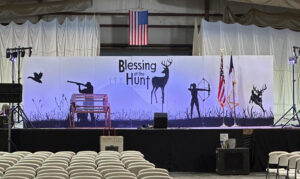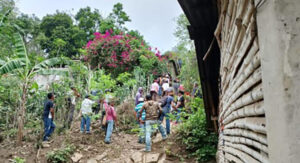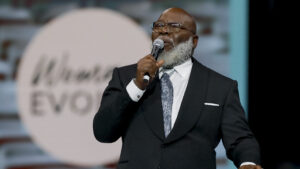
MOBILE, Ala. (BP)–An unnamed benefactor has stepped forward with sufficient financial gifts to keep the University of Mobile’s campus in San Marcos, Nicaragua, operating for another school year and to purchase the assets of the campus.
University of Mobile President Mark Foley said a sufficient amount of money will be put in escrow by the benefactor to cover any deficit, and the benefactor will pay half the costs of the assets up front and the other half at the end of the school year.
Foley emphasized that “under no circumstances” will the university operate the Nicaraguan campus beyond June 1, 2000, the previously announced date for severing relationships with its Latin American Branch Campus.
Attempts to sell the university’s assets to another institution have been unsuccessful, Foley reported. Recently, trustees of Franciscan University in Steubenville, Ohio, a Roman Catholic school, voted not to go forward with negotiations. Earlier, Gardner Webb University, a Baptist school in North Carolina, withdrew from negotiations. With no successor institution to operate the Nicaraguan campus, University of Mobile officials feared a dramatic drop in the number of returning students for the campus’s final year. A drop in students would mean the campus could not generate the nearly $3.3 million needed to balance its budget.
Earlier, the university spent more than $3 million to operate the Nicaraguan campus. Now, trustees of the University of Mobile, together with administrative officers, agreed that only funds generated by that campus or given specifically for that campus would be used in Nicaragua.
At their April 26-27 meeting, trustees were apprised of the situation. They opted to wait another 30 days before assessing the financial feasibility of keeping the Nicaraguan campus open another year. However, it was understood by trustees and administration that if the Nicaraguan campus could not pay its own way, the LABC would be closed immediately, sources said.
That is when the unnamed benefactor stepped forward. Foley said representatives of the benefactor visited the San Marcos campus May 1-2. The benefactor then called saying he wished to proceed with his guaranty to cover any operating deficit the San Marcos campus might incur during the 1999-2000 school year.
Foley declined to say how much the university would recoup from its investments in Nicaragua. He said only that the donor had agreed to pay the same amount that Franciscan University had considered paying.
The trustee executive committee met by conference call May 3 and voted to accept the offer. That day students at San Marcos were told the campus would open in the fall as previously planned.
Foley said if the campus had closed, the university was prepared to bring Nicaraguan students to the Mobile campus for the coming school year. Still, that did not satisfy all the students in San Marcos. According to the Mobile Register, some were considering filing a class-action lawsuit against the university to keep the campus open for its final year had the campus closed before June 1, 2000.
The anonymous benefactor provides the university the opportunity to bring the Nicaraguan project to an “honorable end with an honorable withdrawal,” Foley said. The school will have no lingering liabilities, he said, and all obligations in Nicaragua will cease when the university ceases to operate the San Marcos campus.
“We will leave a lot of dollars in Nicaragua. There has been a lot of pain, but the San Marcos campus has done a lot of good for the country,” Foley declared.
On Tuesday, May 11, representatives of the benefactor were to meet with university officials to finalize details. “The people who put up the money want a voice in how the campus is operated,” Foley explained. He said details will be examined by attorneys and final documents signed by June 1, the beginning of the university’s next fiscal year.
Foley said he planned to give a complete report of developments concerning the Nicaraguan campus to the Alabama Baptist State Board of Missions at its May 13-14 meeting in Montgomery.
“I want everybody to know this is an answer to prayer, a modern-day miracle,” Foley said.











